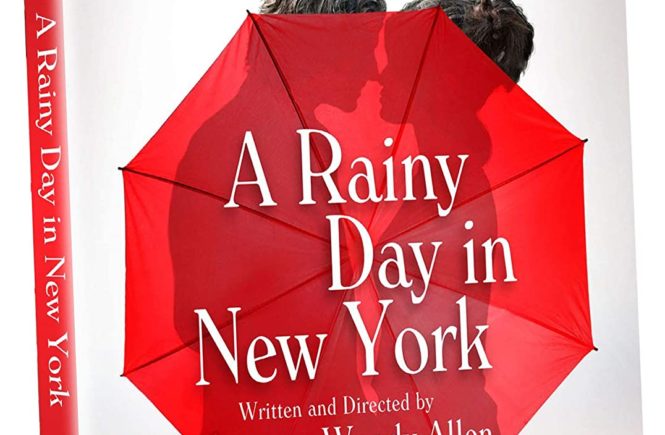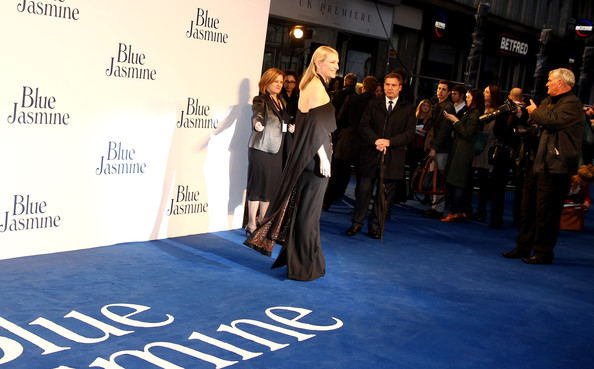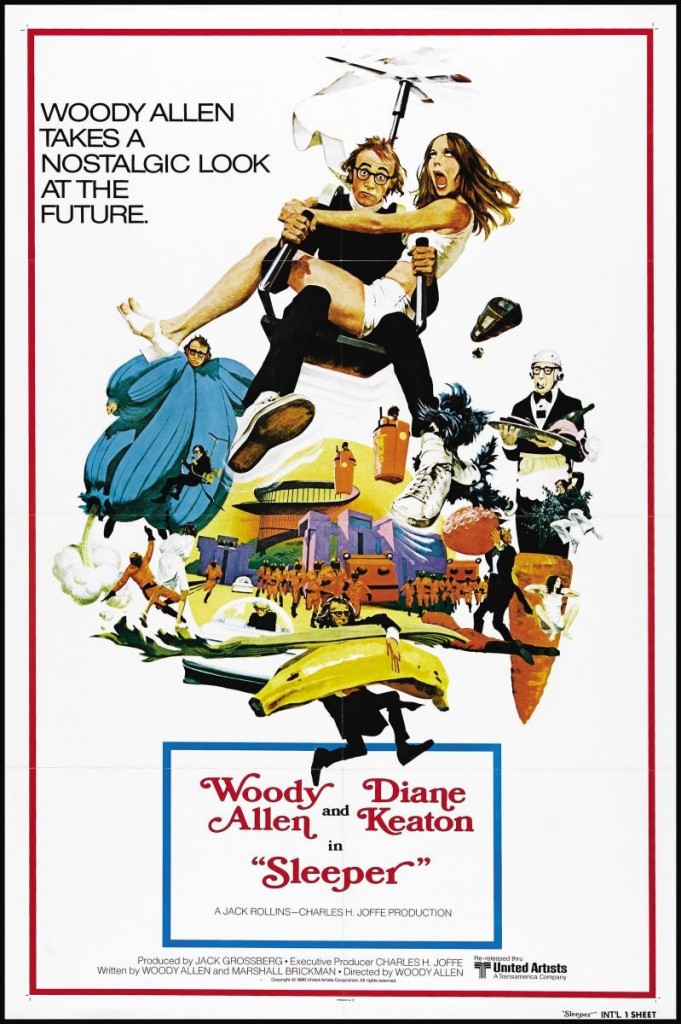
Sleeper is Woody Allen’s 4th film as a director, lead actor and writer. Another farcical comedy, it continues his growth as a visual director, a writer with more than just jokes and probably most importantly of all – the arrival of Diane Keaton into his films.
Keaton and Allen had appeared together in Play It Again, Sam, both on stage and on film. The play was written by Allen, but not directed. And while they both give fine performances in that film, here the two of them are already an unbeatable double act.
Sleeper is another great set-up for Woody Allen’s stock onscreen persona. He plays Miles Monroe, a man who has been frozen for 200 years, and wakes up in 2173. He finds himself in a strange futuristic world, run by an oppressive, big-brither-like government force. He unwittingly becomes part of the underground movement and causes a revolution.
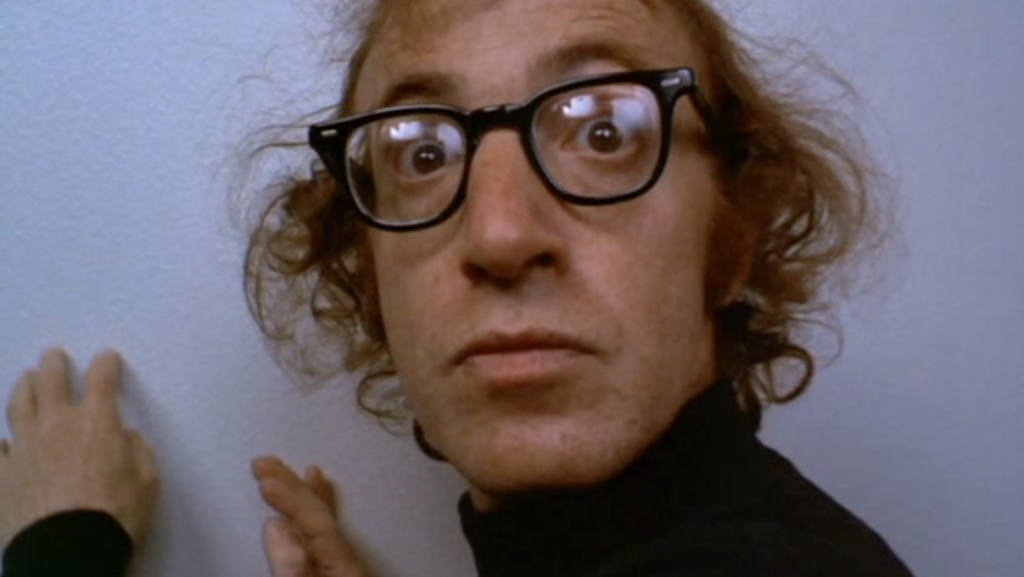
Allen has often talked about how his initial ideas for a film and what ends up on screen can sometimes be very different – and very disappointing to him. Sleeper has probably one of the biggest gaps – the finished product was half the planned film. The story was to also include Miles’ past before being frozen. The second part, in the future, was initially a world where speaking is banned, and would be a silent film.
His studio United Artists were reportedly unhappy with this (understandably). So what we get is a director with bigger ideas, deliverying something that pleases his crowd. But for us, that extra story is not missed. A few references to Miles’ pre-frozen life aside, we are eager to dive into this strange new world with this familiar character.
The first striking thing about this film are the sets. The large number of futuristic architechture (mostly already in existing buildings), the cars and the various machines are all well done (especially on a Woody Allen budget). For a man who was telling jokes a few years earlier, he was certainly developing his eye for memorable onscreen visuals.

He also reveals himself to be a master parodyist. It’s a bit Clockwork Orange, a bit 1984, a bit 2001 and more. The blue food, the helicopter pack, what is and isn’t good for you – all plays off old science fiction cliches. Allen reportedly asked Isaac Asimov for advice about the futuristic aspects of the film.
The story however, is a lovely mess. Allen continues to write short comedic scenes that only loosely tie together. The plot goes wildly off the map. Some attempt is made to tie it altogether in the end, but even that is cumbersome. It ends touchingly but suddenly.
But those little joke bits are wonderful. It has nothing to do with anything, but the big vegetables and fruits scene is still classic slapstick. Seeing Diane Keaton pretend to be Marlon Brando is worth the price of admission alone. The various scenes of dialogue-less physical humour. And there are no shortage of great one liners (“I knew it was too good to be true. I parked right near the hospital”). All classic early Woody Allen, and still quite funny to this day.
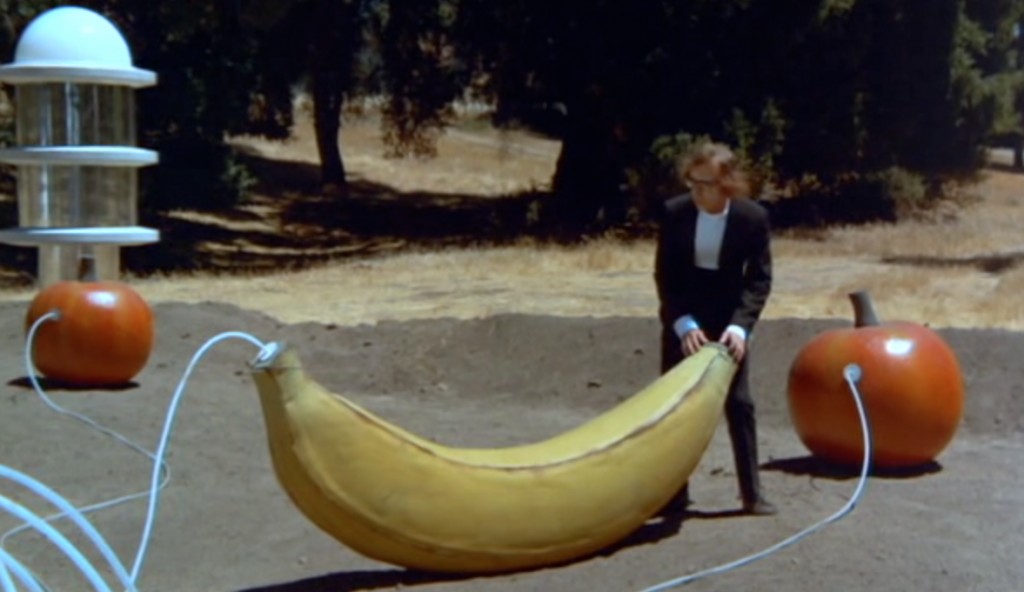
But there is more than humour going on here. For a funny-man, Allen waits 7 or 8 minutes before giving us some real jokes. He let’s us soak in the sets, the premise, the world. There’s also bigger points about corrupt leaders (a la Bananas) and obsessions with health being made, and being made fun of.
Then there’s Keaton. Looking beautiful, sassy, vulnerable and hilarious, she gives the film a heart that it desperately needs. She is talented enough to stand up to Allen’s zaniness, and can keep up with his speed. When it’s just the two of them breaking into the enmy base, the two can barely stop trying to one-up eachother. The magic between them is all there, and we would see more of it in the coming years.
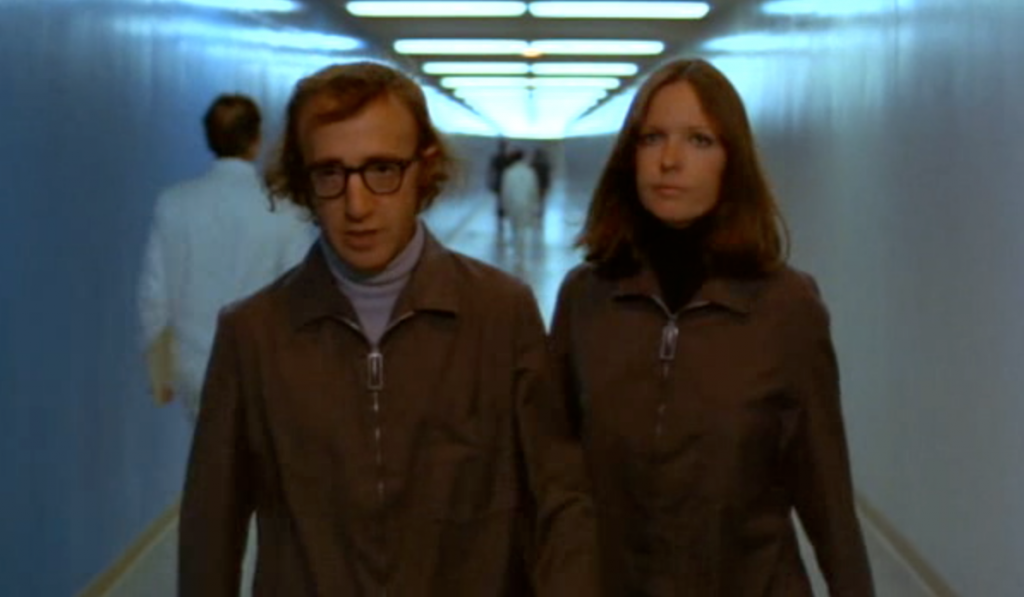
Sleeper isn’t Allen’s funniest or best film, but it’s another solid entry into the canon. and it was only his fourth film. It’s a film that has become a part of popular culture. You see it in Futurama, and then films like The Invention Of Lying. But much better was about to arrive.

